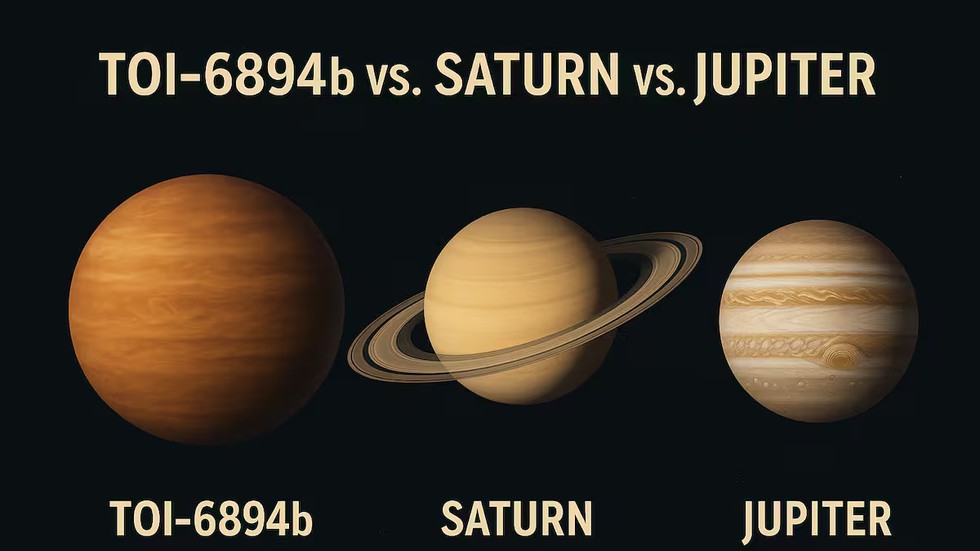About TOI-6894b
- TOI-6894b, a gas giant planet, roughly the size of Saturn, has been found orbiting an unusually small red dwarf star.
- This rare pairing defies current models, which say small stars don’t have enough material in their surrounding disks to form such large planets.
- The planet was found about 241 light-years from Earth in the constellation Leo.
- TOI-6894b is about 1.07 times the diameter of Saturn but has just over half its mass.
- This makes the planet very low in density, similar to that of a beach ball. Despite its large size, the planet orbits extremely close to its host star, completing a full revolution in just under three Earth days.
- The star it orbits, TOI-6894, is a red dwarf with only about 21% the mass of the Sun and roughly 250 times dimmer.
- In terms of physical size, the star is just 2.5 times wider than the planet itself, a remarkable size ratio rarely seen in planetary systems.
Significance of the Discovery
- Challenges Core Accretion Theory: The core accretion model, which explains how gas giants form around stars, struggles to account for the formation of a giant planet around such a low-mass star due to insufficient material in the protoplanetary disk.
- Implications for Exoplanet Science: Since small stars like TOI-6894 are the most common in the galaxy, this discovery suggests there may be many more giant planets than previously thought.
- Future Studies: TOI-6894b is scheduled for atmospheric observation by the James Webb Space Telescope (JWST), which could provide unprecedented insights into its composition and formation.
